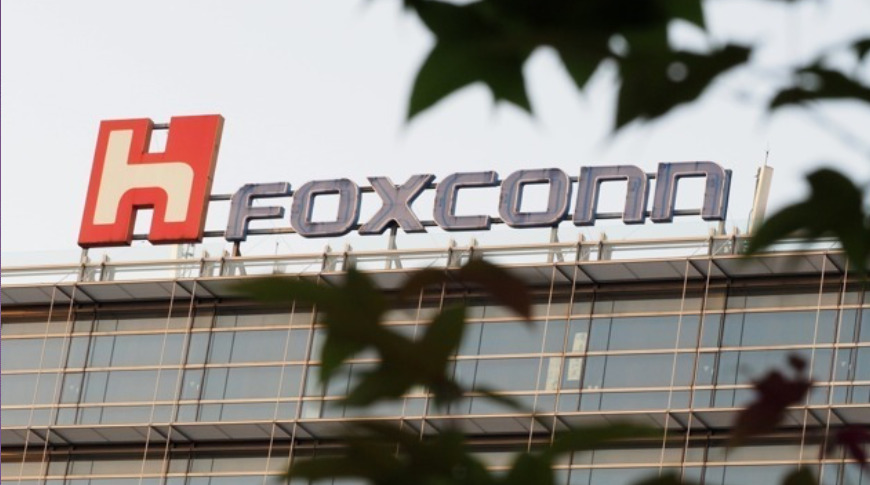Foxconn used five times more temp workers than permitted for 'iPhone 11' assembly surge
Last updated
After Foxconn violated Chinese labor laws in regards to temporary worker volume, Apple has investigated and is working to resolve the situation.
Apple has confirmed a claim that its major iPhone manufacturer Foxconn has employed too many temporary staff. The country's laws specify that temporary staff — also known as dispatch workers — cannot exceed 10% of a company's total workforce. However, Foxconn reportedly had up to 50%.
The non-profit watchdog organization China Labor Watch issued a report saying that it had received complaints about working conditions, including overtime, at Foxconn's Zhengzhou factory.
"Apple and Foxconn know that the issue with dispatch workers is in violation of labor laws, but because it is profitable to hire dispatch workers, they haven't addressed the issue," said Li Qiang, executive director of China Labor Watch. "They have allowed these violations to continue over the years."
While not addressing whether this constitutes breaking Chinese laws, Apple said that it had investigated the issue and concluded that it "exceeded our standards."
"To make sure our highstandards are being adhered to, we have robust management systems inplace beginning with training on workplace rights, on-site workerinterviews, anonymous grievance channels and ongoing audits," continued Apple.
Apple further said that it was working with Foxconn to "immediately resolve the issue" of temporary staff. And regarding the overtime working conditions, the company said that "this issue has been corrected."
Foxconn said that it was addressing all issues.
"We did find evidence that the use of dispatch workers and the number of hours of overtime work carried out by employees, which we have confirmed was always voluntary, was not consistent with company guidelines," continued Foxconn in a statement.
Neither company has addressed China Labor Watch's further claims about alleged verbal abuse, sexual harassment, and exposure to toxic chemicals.
The report specifies that Foxconn's use of temporary staff is during peak production season for Apple's iPhones. Foxconn has been recruiting over the summer to prepare for the manufacture of the iPhones which are due to be unveiled on September 10.
This report also comes at a time when US/China relations are under strain and companies, including Apple, are planning to move production away from the Chinese mainland.
 William Gallagher
William Gallagher














 Amber Neely
Amber Neely
 Thomas Sibilly
Thomas Sibilly
 AppleInsider Staff
AppleInsider Staff

 Malcolm Owen
Malcolm Owen
 Christine McKee
Christine McKee










52 Comments
"exceeded our standards." is meaningless.
If the standard is a minimum, then exceeding the standard is good ("we are better than our minimum").
If the standard is a maximum, then it's bad (the level reached is too high).
Of course, they mean the second, but it's not clear from the statement.
The motivation for the law is one of a societal goal, but it doesn’t seem to account for something like an annual spike in the need for labor by a company. Therefore strict enforcement of such a law introduces inefficiencies.
Further, how does it harm any of the permanent employees or the 10% representing temporary workers to add one more temporary worker after you’ve reached the 10% threshold? I’d doesn’t make sense. If it’s harmful to have some quantity of temporary workers over some arbitrary limit, why isn’t it harmful to have even that initial 10%, why isn’t the very first temporary worker hire causing harm?
More detail on the complaint from CNBC -- whether founded or unfounded, but pertinent:
"Workers earn a base wage of 2,100 yuan ($295), which is “insufficient to sustain the livelihood for a family living in Zhengzhou city,” according to the CLW report.
The report also claims other rights violations at the factory including:
* They use the term "dispatch workers" instead of "temporary workers" -- likely because they are paid and furnished by outside firms rather than employed by the company itself. Many healthcare organizations in the U.S. employ the same tactic -- use workers employed by outside companies in order to evade workplace rules and worker rights.
But, overall, this kind of thing -- misreatment of the workforce -- is reminiscent of how workers were treated in U.S. prior to the 1930's -- until the Roosevelt administration enabled and empowered unions to fight back.
https://www.cnbc.com/2019/09/09/apple-appl-claims-it-broke-china-labor-laws-at-iphone-factory-mostly-false.html